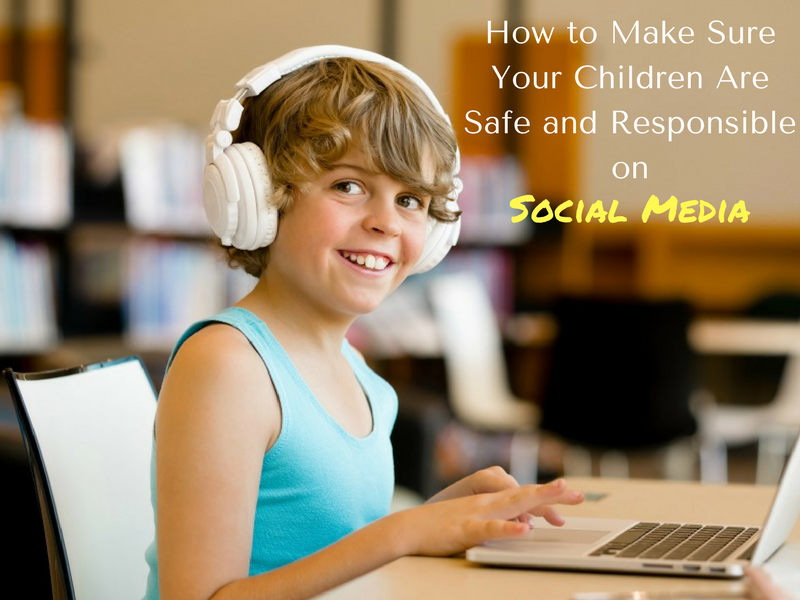We all know the benefits of social media, and obviously here at Web Traffic That Works we’re big exponents of it. The world has never before been so well connected; you can keep in regular contact with friends and family on the other side of the globe. It has opened up new opportunities for businesses everywhere, in all industries and of all different sizes. Across the board, it is a major game changer.
But while all of this is true, social media comes with its own drawbacks and dangers. With so many people sharing information about themselves, and with the anonymity offered to online users, there are a new wave of hazards that threaten all of us. And in many ways, our children are at the greatest risk.
As parents and people of the older generations, it’s our responsibility to protect our children from these dangers. But first of all, we need to be aware of what those dangers are and what we can do to stop them.
In this article, we’re going to be having a look at some of the key dangers that threaten children and active steps that you can take to be more aware and avoid potential problems.
Peer Pressures
Now, by peer pressures we’re really talking about bullying and everything that comes with it; particularly, how it has changed and evolved with the advent of social media. For people of my generation, bullying was something that took place in the schoolyard, and in that sense it was insular. Social media has changed all of that.
Cyber bullying can take many forms, but perhaps the biggest problem is how expansive it can be. Nasty comments and mean videos posted online can be circulated to all four corners of the world, with strangers laughing and joining in the teasing at the expense of the bullied child. I don’t need to tell you how painful and impactful this can be on a kid’s life.
Below are a few warning signs that you can look out for in your children. If your child is exhibiting two or more of the following signs, then you may want to sit them down with them and find out what the root of the problem is, and in particular find out if they’re the victim of cyber bullying.
They’ve stopped using or seem nervous around online devices
They seem angry or depressed after having been online
They’ve become abnormally withdrawn
They’re avoiding discussion and have become secretive
As parents and members of the older generation, it’s our responsibility to protect the children in our lives from becoming victims of bullying, but it’s also important to stop them from becoming a part of it. Statistically, one in five children say that they have witnessed cyber bullying in one form or another. The most common forms of cyber bullying are not one-on-one but rather a group of children working together. Their behaviour might include writing nasty comments on Facebook or mass ‘unfriending’ the bullied individual.
Be sure to not only look out for signs that your child might be the victim of cyber bullying, but also educate them on how to treat other people on social media, and not to stand by and say nothing if they witness someone else being bullied.
Predators
As most of us know, cyber predators are one of the biggest problems and threats to parents in this day and age. By hiding under the anonymity offered by the Internet and social media platforms, predators can interact with children using a false profile.
An equally scary thought is how much information our children are unwittingly offering up to cyber predators. By tagging themselves in photos and locations, and saying which schools they attend, children are offering huge swathes of information about what they look like and where they might be at a particular time.
Ironically, many parents are unknowingly contributing to this problem as well. We also tag our children in photos on social media: at birthdays, wedding anniversaries and other family occasions.
Unfortunately, there is no simple solution to this as sharing this type of information has become entrenched in our culture. According to a UK-based study, by the time a child turns 18, their image will have been shared on social media platforms over 1,000 times. For better or worse, this is simply part and parcel of 21st century life for most people.
Of course, it’s important to have the highest security settings across all social media platforms, not just on those of your children but your own too. However, it’s nigh-on-impossible to prevent all information about your children from going public. Thankfully, there are some steps that parents and guardians can take to ensure that their children stay clear of cyber predators and avoid any dangerous situations. And that’s what we’ll be getting into in the next section.
Parenting
Of course, as a parent or guardian you feel an enormous responsibility to keep your children safe at all times. The vastness and technicalities of social media can make this difficult. Some parents don’t feel totally tech-savvy when it comes to social media, and in many cases the kids know more about using it than you do. And while this can present problems, it doesn’t mean you should feel helpless in protecting your children.
Children are kept away from many dangerous aspects of society – such as alcohol and tobacco – with age-limits. And while social media does in theory have age-restrictions (for example, users must be 12-years of age or over to subscribe to Facebook), it is almost impossible to regulate. In fact, 38% of Facebook users are apparently under 12-years’ old, and 55% of parents are aware that their child who is under the age of 12 has a Facebook account.
These restrictions are in place for a reason, and it may be wise to consider whether you should allow your under-12 child to have a Facebook profile in the first place. However, this isn’t the only way of protecting your child. You should ensure that you have the login details to all of the social media platforms that your children use. I’m not saying that you should keep your kids under 24/7 surveillance, but you should check-in to their profiles from time to time. This way, you’ll be able to make sure that they’re not involved in cyber bullying and that they’re not interacting with any unsavoury individuals.
The Millennial Effect
A millennial is a term used for anyone born after 1984, so for many people of my generation, their children count as millennials. The ‘Millennial Effect’ is a concept about the impact that social media is having on this millennial generation… and unfortunately some of these effects aren’t that great.
It has been suggested that the huge amount of exposure to social media has created a distortion in a millennial’s interpretation of what ‘real life’ is. This is because social media profiles in themselves don’t present accurate depictions of the users’ lives. Of course, for most of us, when we post photos and status updates on social media, it’s usually to share happy occasions or successes. We far less frequently share the troubles we go through and the woes. Therefore, a proportion of millennials are entering adulthood unequipped with the tools they need to succeed; they don’t realise the hard-graft real people need to go through in order to make something of themselves, and that the world isn’t simply a place of easy chances and instant gratification.
Once again, this is a tricky one to correct as it’s simply part of our contemporary culture. However, as a parent or guardian you can make sure that your kids have an equal dose of reality. You can restrict the amount of time they spend on social media, particularly during school holidays, to ensure that they don’t become too invested in its warped view of the world. Likewise, be sure to remind them from time to time that real life isn’t as rosy as it may appear on social media.
Adjust to the New Rules of the Game
Hopefully after reading this article you haven’t decided that all social media is evil and that you must keep your children away from it at all costs. That hasn’t been my intention at all! As I said at the beginning of this piece, social media is an excellent tool that can be used to enrich lots of different areas of our lives. However, as social media grows, it is essential that we as the older generation are aware of the potential dangers and threats that it poses to our children.
As a parent or guardian, you can ensure that you’re well positioned to keep you child safe online while at the same time making sure that they’re taking the best bits of social media and using it to lead a happy, fulfilled life.
If you’re interested in learning more about how to keep your children safe on social media, I’ve included a few resources below:
Are you interested in learning how to generate high-quality leads on Twitter? If so, be sure to check out our FREE 4-Week Twitter marketing course below.







